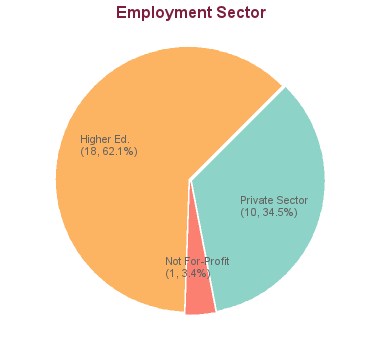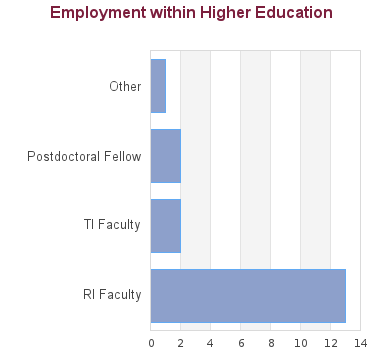Overview
Established in 1983, the Department of Statistics at UBC is internationally renowned for its excellence in research and the high calibre of its faculty members. Our programs offers students different options for pursuing their interests and professional goals. Students completing our PhD program will be well-prepared for a job in industry, government or academia. During their program our students develop important professional skills that include: effective communication skills for both technical and non-technical audiences, creativity and originality, and grant writing skills, among others. They also acquire a broad knowledge of modern statistical methods, including computing and data management.
NEW PhD Track Admission Stream!. More information can be found here https://www.stat.ubc.ca/phd-track.
What makes the program unique?
The Department is renowned in Canada for its research excellence and its leadership in the research community. Students are engaged through both courses and research, and develop a strong set of skills, both applied and theoretical. The Department has always valued data driven research, consulting and collaboration, and has long held communication and computing skills as crucial for success. Graduate students participate actively in our research, teaching and consulting activities, and enjoy a wide variety of opportunities for interaction with other researchers and students on- and off-campus. In addition, our graduate students run their own statistical consulting service, which provides them with professional (paid) experience even before they finish their program.
We have recently introduced a highly innovative qualifying process – instead of writing an exam, first year PhD students register in a reading and research course where they work on research papers proposed by individual faculty members.
We also just recently introduced a new PhD Track stream. Effective now, we offer this stream for strong undergraduate students expecting to graduate in Spring 2025 interested in a PhD in Statistics. Admission under this new stream is in a MSc program but with guaranteed transition to PhD at the end of year one subject to satisfying program requirements. This track is intended for exceptional undergraduate students with demonstrated research potential. Students interested in the PhD track should identify one or more faculty members as potential research supervisors. You can find more information about this on our admissions page here https://www.stat.ubc.ca/graduate-admissions.
Quick Facts
Intake
Program Enquiries
Contact the program
Supervisor Search
Departments/Programs may update graduate degree program details through the Faculty & Staff portal. To update contact details for application inquiries, please use this form.




